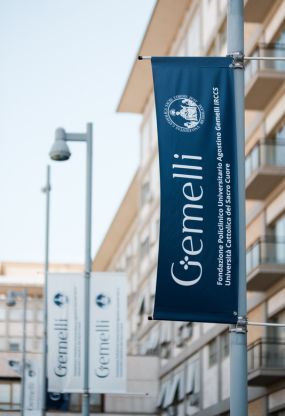Accredited School
The specialist in Neurology must have gained theoretical, scientific and professional knowledge in the field of symptoms and clinical-instrumental signs with which diseases of the nervous system manifest themselves, even in old age; must have acquired a clinical orientation in the field of developmental neurology; he must be able to treat neurological patients or patients with neurological complications including alterations of the central nervous system, peripheral nervous system and muscle.
General learning objectives: knowledge of the ontogeny and structural organization of the nervous system; the functioning of the central and peripheral nervous system and muscle in normal and pathological conditions; the fundamentals of statistical analysis and the epidemiological method; computer skills for data acquisition and processing.
Learning of the biological basis of the action of drugs, as well as the medico-legal and bioethical implications of the use of drugs and more generally of the problems related to neurological diseases; learning of the fundamental etiopathogenetic mechanisms, including those of molecular medicine applied to neurology and clinical neurochemistry;
General training objectives: knowledge of the history of medicine and neurology;
educational objectives of the type of School: knowledge of the determining causes and pathogenetic mechanisms of diseases of the central and peripheral nervous system and muscle and of the care activity appropriate to it; structural and/or functional alterations of the nervous system and the corresponding lesions from a neuro-pathological point of view; functional semeiotics, clinical methodology, instrumental and laboratory diagnostics; the neurophysiological, neuroimaging and neuropsychological pictures that characterize diseases of the nervous system throughout the life cycle; developmental neurology and geriatric neurology; emergency neurology, pathophysiology and therapy of acute and chronic pain, clinical and molecular neurogenetics, diagnostics and recovery of disability and neurological rehabilitation, clinical neuropsychology, clinical neurobiology, including histopathology of the central nervous system, muscle and nerve, neuroimmunology.
Integrated training objectives (i.e. common core): The resident must have acquired satisfactory theoretical knowledge and professional competence in the recognition and treatment, even in emergency-urgency conditions, of the most common pathologies in the field of internal medicine and developmental age.
For all types of the class, given the specific cultural interconnection existing between the types, the ECTS of the common trunk of the related specialties must include:
- theoretical knowledge of the anatomy and physiology of the central and peripheral nervous system;
- general theoretical knowledge of the etiopathogenetic mechanisms of neurological and psychiatric pathologies in the various phases of the life cycle;
- theoretical knowledge and basic practical experience of methods for diagnosis, including differential diagnosis (clinical examination, diagnostic imaging, electrophysiological techniques, chemical-biological examinations and psychometric evaluations) of pathologies of neurological and psychiatric interest throughout the life cycle;
- theoretical knowledge and clinical-practical experience (including urgent/emergency situations) relating to the main pathologies of neurological and psychiatric interest in the various stages of the life cycle, including neurological and psychiatric complications of internal diseases;
- theoretical knowledge and basic clinical-practical experience relating to the main techniques for the prevention, treatment and rehabilitation of neurological and psychiatric diseases throughout the life cycle.
The following are compulsory professionalizing activities for the achievement of the educational purposes of the typology:
- clinical diagnostic protocols: at least 100 cases performed personally;
- clinical cases: at least 250 cases, of which 100 were followed in person, including classic chronic neurological diseases, neurological emergencies, cerebrovascular diseases, rare neurological diseases, acute and chronic pain syndromes, discussing the approach and management with the structured specialist and/or the head of the clinical department;
- participation in the conduct, according to the rules of good clinical practice, of at least 3 controlled clinical trials;
- interpretation and discussion of neuroradiological and neuroimaging examinations of the main pathologies: at least 200 cases discussed directly with expert personnel;
- interpretation and discussion of neurophysiological examinations (electroencephalograms; evoked potentials; electromyographies and neurographs; Doppler ultrasound) of the main neurological diseases: at least 200 cases discussed directly with expert personnel;
- evaluation and discussion with the structured specialist of examinations performed in resuscitation centers for the purpose of suspecting and/or ascertaining brain death: at least 20 cases;
- evaluation, in at least 50 patients, of disability, using appropriate functional scales and identification of possibilities and tools for recovery, discussing setting and conducting with expert staff;
- evaluation, in at least 50 patients, of mental decay by means of neurocognitive examinations, discussing setting up and conducting with expert staff;
- neuropathological examinations: at least 20, including muscle or nerve biopsies, discussed directly with expert personnel;
- CSF sampling: at least 30 cases performed personally, discussing the findings and results with expert personnel.
The student will be able to compete for the diploma after completing the professionalizing activities.




